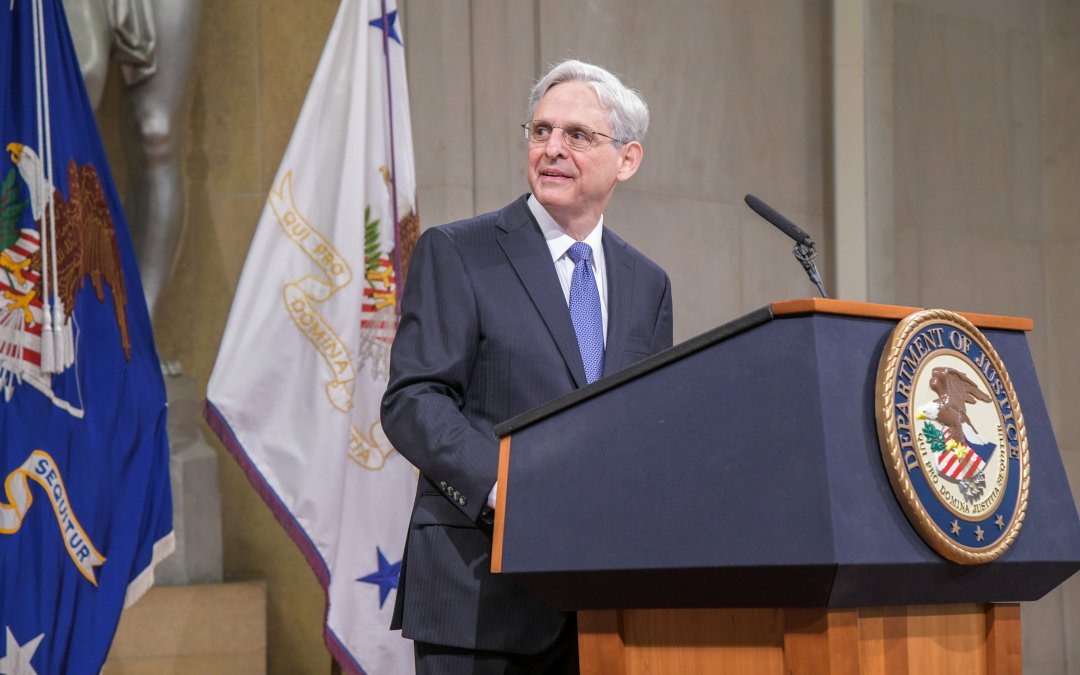WASHINGTON — Republican Senators on Wednesday grilled Attorney General Merrick Garland for the Department of Justice’s handling of attacks and arrests on anti-choice protesters, the fentanyl crisis and classified documents.
Today’s testimony before the Senate Judiciary Committee marks the first time Garland has testified before the new Congress. The DOJ has faced numerous scandals since his last testimony, including the appointment of special counsels to oversee investigations into the handling of classified documents by President Joe Biden and former President Donald Trump.
Sen. Lindsey Graham (R-S.C.) called the nation “adrift,” arguing the DOJ is not doing enough to counter crime and protect American citizens.
Republican Senators focused on the DOJ’s prosecution of anti-choice protesters and Catholics, as well as Garland’s appointment of a special counsel to investigate the found documents.
Garland justified these appointments based on the “extraordinary circumstance” of Trump’s 2024 campaign announcement, and Biden’s probable re-election announcement expected in the near future.
In a series of tense questions, Sen. Ted Cruz (R-Texas) and Sen. Josh Hawley (R-Ark.) asked why the Federal Bureau of Investigation arrested anti-choice protester Mark Houck for assault in his home with upwards of 20 officers in tactical gear.
Garland said the series of events they presented were not consistent with that of the information he heard about the arrest. Houck was later acquitted of assault.
“I’m deeply disappointed with the last two years,” Cruz said. “In my judgment, the DOJ has been politicized to the greatest extent I have ever seen.”
Republicans accused the DOJ of holding an anti-catholic bias and failing to prosecute individuals who threatened Supreme Court justices under Section 1507, which criminalizes those who have intent to influence the outcome of a court case.
Both Democrats and Republicans questioned Garland on how the DOJ is addressing the fentanyl epidemic. Senator Dick Durbin (D–Ill.), who chairs the Senate Judiciary Committee, said the committee agrees on regulating social media platforms for the sale of illegal drugs.
Republicans criticized Garland for failing to enact policies to stymie the epidemic, with Sen. John Cornyn (R-Texas) accusing him of “cherry picking” which crimes should have a mandatory minimum sentence.
Garland admitted that the DOJ’s policies were not stopping fentanyl deaths, but argued that discretion with sentencing allows the Department to “focus attention on things that are damaging American people in the largest possible respect.”
After Senator Chuck Grassley (R-Iowa) questioned his handling of the Hunter Biden investigation, Garland vowed to support the U.S. attorney in Delaware, David Weiss, as he carries out the investigation. Garland said, however, that he would stay out of the investigation.
“I promise to ensure that he’s able to carry out this investigation, he’ll have full authority to do that,” Garland said.
Democrats praised Garland for restoring the integrity of the DOJ that Durbin said was previously “embroiled in scandal.”
“Every day, Department employees counter complex threats to our national security. They fiercely protect the civil rights of our citizens,” Garland said. “They pursue accountability for environmental harms. They prosecute crimes that victimize workers, consumers, and taxpayers. They defend our country’s democratic institutions.”
On violent crime, Sen. Chris Coons (D-Del.) applauded Garland for steps the DOJ has taken to create safer communities, pointing to the decrease in violent crime in his home city of Wilmington, Del.
However, Sen. Tom Cotton (R-Ark.) pressed Garland on the murder rates in cities such as New Orleans, St. Louis and Baltimore, and criticized the DOJ for not doing enough to prevent these deaths.
“Should American citizens in places like New Orleans and Baltimore and St. Louis begin to seek asylum in countries like Honduras or Guatemala?” Cotton asked.



